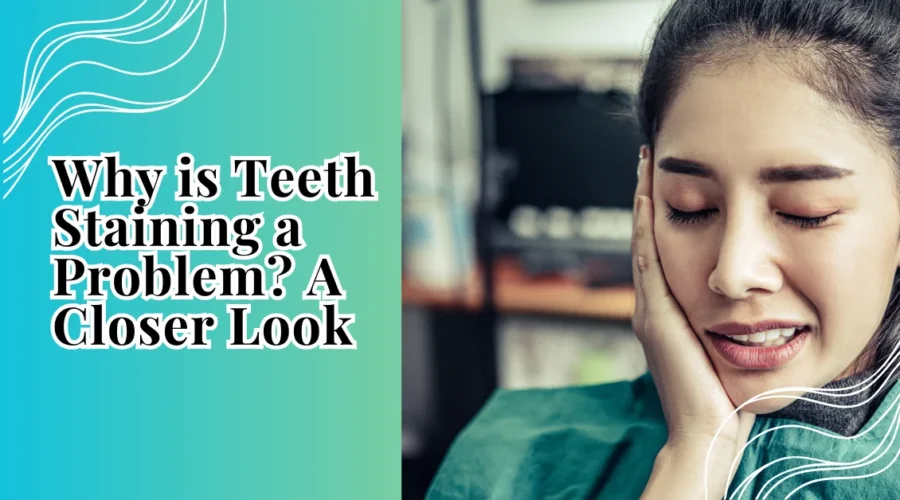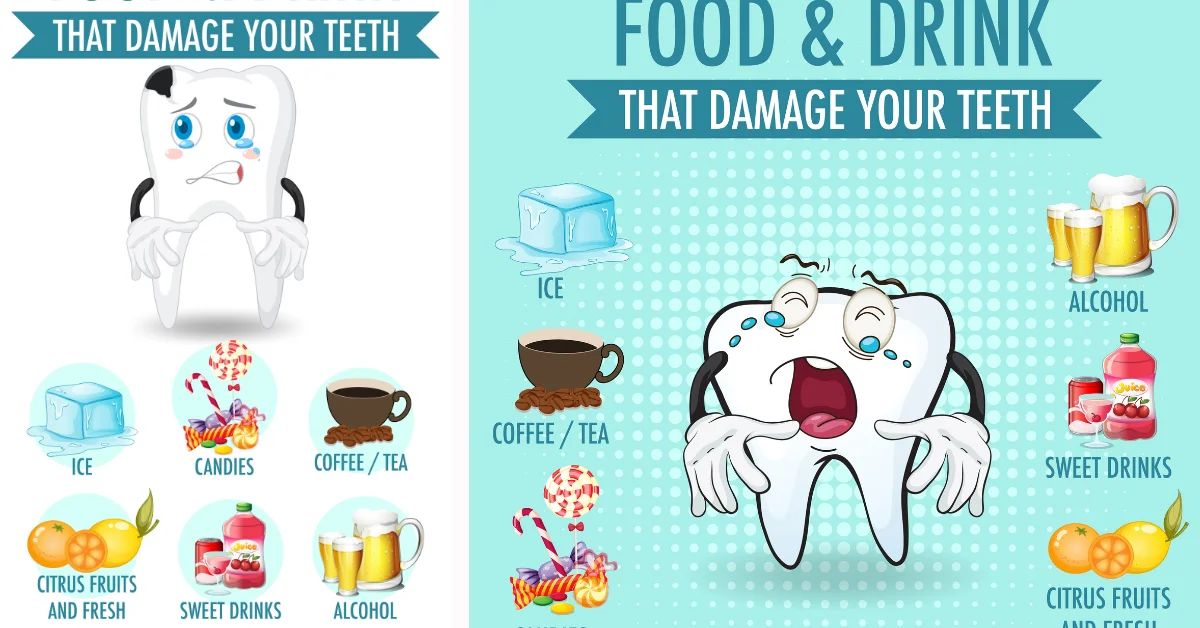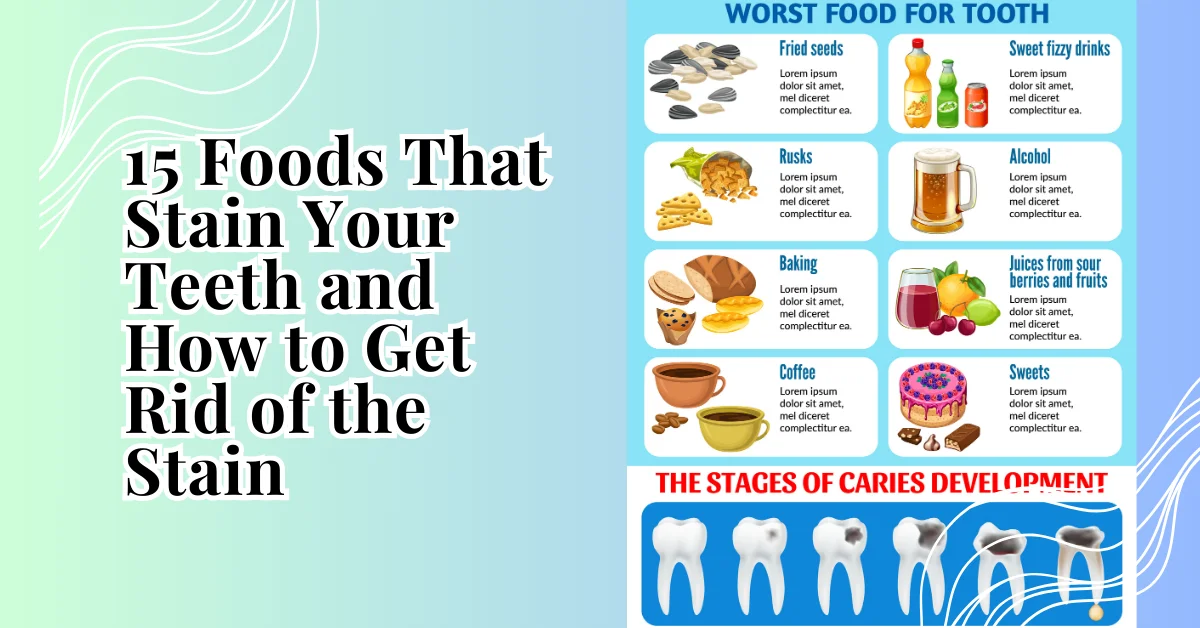Why is Teeth Staining a Problem? A Closer Look
Suppose you’re in an important business meeting, presenting your ideas with passion and conviction. As you flash a smile to engage the audience, all eyes are drawn not to your words but to the yellowish-brown stains on your teeth. Suddenly, your credibility takes a nosedive, leaving you feeling embarrassed and undermined.
Teeth staining is more than just a cosmetic concern. It becomes a major blow to one’s self-confidence and daily life. It also indicates underlying dental problems or poor oral hygiene habits. So, many health and lifestyle issues can arise from one particular thing: teeth staining. Therefore, we will learn why teeth staining is a problem in this article.
Social Embarrassment
1. Cause Teeth Discoloration
Our society strongly emphasizes appearance. Bright, white teeth have become a symbol of good oral hygiene and attractiveness. Stains on our teeth, whether due to coffee, tea, smoking, or other factors, can negatively affect our overall health. They can also impact our personal health and dental care routine. Therefore, it becomes challenging to depend on one specific teeth whitening method that doesn’t work well in this case.
2. Make Teeth Look Unattractive
Stained teeth make us look unattractive. It’s natural for humans to be drawn to aesthetically pleasing features in others. A beautiful smile with pearly white teeth instantly catches our attention and leaves a positive impression. Conversely, we are often repelled by visible dental flaws such as yellow or brown stains on someone’s teeth. This can lead to self-consciousness and lower self-esteem for those struggling with discoloration issues.
3. Affect How Other People Perceive You
Individuals with whiter smiles are perceived as more confident and booming than those with stained teeth. This societal perception can profoundly impact our self-esteem and interactions with others. As a result, stains on our teeth could negatively influence first impressions. This could ultimately hinder potential personal and professional relationships.
Hygiene Concerns
1. Cause Bad Breath
Bad breath is one of the biggest problems caused by stained teeth. When teeth are stained, plaque and germs build up on their surface. These build-ups release unpleasant odors. This leads to bad breath that lasts for a long time, which can be embarrassing and turn people off.
2. Increase the Risk of Cavities
Having stained teeth makes you more likely to get cavities. The discoloration indicates that the enamel has been weakened or damaged. That makes it easier for bacteria to penetrate the tooth’s surface and cause decay. Therefore, brushing and flossing your teeth every day is even more critical.
3. Increase the Risk of Gum Disease
Stained teeth pose a higher risk of gum disease. When plaque builds up on the teeth, it affects their appearance and irritates the surrounding gums. This irritation can lead to inflammation, gingivitis (early stage of gum disease), or even periodontitis (advanced gum disease).
4. Increase the Risk of Tooth Erosion
Stained teeth can raise the risk of tooth erosion. The compounds that cause staining include nicotine from smoking or pigments from coffee and tea. These compounds can weaken the enamel on our teeth over time. As enamel erodes, our teeth become more vulnerable to sensitivity and decay. Moreover, tooth erosion can affect the appearance of our smile by making it look duller and more aged.
5. Increase the Risk of Oral Inflammation
Inflammation of the mouth can also be caused by stains on our teeth. When food particles accumulate on our teeth over time, they can irritate the gums and other surrounding tissues in our mouth. If treatment is neglected, this may result in inflammation and discomfort. It may even lead to developing disorders such as gingivitis or periodontitis.
6. Increase the Risk of Tooth Sensitivity
Another lesser-known consequence of teeth staining is an increased risk of tooth sensitivity. The outer layer of our teeth (enamel) acts as a protective barrier against temperature changes and food particles. When stain-causing agents to the enamel surface over time, they gradually erode this protective layer. As a result, the underlying dentin layer becomes exposed to external stimuli. This leads to heightened sensitivity and discomfort when consuming hot or cold foods/drinks or even breathing in cold air.
Psychological Impact
1. Affect Your Self-esteem
If your teeth are discolored, you could feel insecure and lack confidence regarding your look. This can significantly affect your self-esteem and make you reluctant to smile or show your teeth publicly. Feeling insecure about how your teeth look can harm various aspects of your life. As a result, it impacts your social interactions and professional opportunities.
2. Affect How Comfortable You Feel When Smiling
Teeth staining can affect how comfortable you feel when smiling. Smiling is a universal expression of happiness and positivity. But embracing this natural instinct becomes difficult if you’re constantly worried about your teeth’ color. The discomfort prevents you from fully enjoying moments that should be filled with joy and laughter.
Wrap Up
Teeth staining is a problem that affects many individuals and impacts their overall appearance and confidence. It can result from various factors such as diet, smoking, or poor oral hygiene. Moreover, teeth discoloration can be an early warning sign of more serious dental problems, including cavities or gum disease.
Therefore, it is critical to deal with this issue immediately with routine dental checkups, good oral hygiene, and lifestyle changes. By taking proactive steps, anyone can maintain a bright, healthy smile that boosts their self-esteem and overall well-being.



